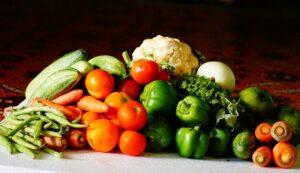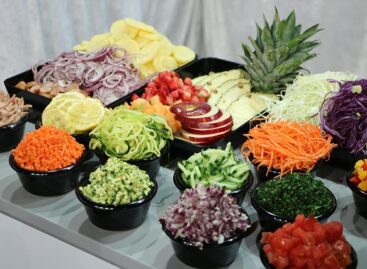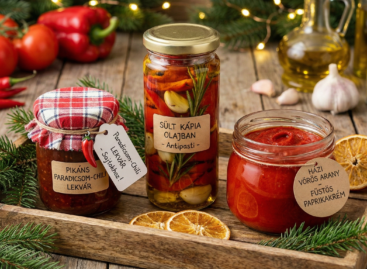Price sensitivity of vegetable consumption: new trends among Hungarian consumers
In the midst of the inflationary crisis, Hungarian customers pay more and more attention to the price and quantity of vegetables and fruits, which is why promotions continue to play a prominent role. At the press event of DélKerTÉSZ on September 18, it was said that for the organization of 500 producers in Szentes, a record amount of goods was delivered to domestic supermarket chains, which partially offset the decrease in producer prices – we learn from the Pénzcentrum’s report.

According to DélKerTÉSZ’s report, the organization’s sales in the first eight months of the year amounted to nearly HUF 14 billion, which, however, represents a decrease of HUF 2 billion on an annual basis. The president, Sándor Nagypéter, emphasized that the drop in quantity was caused by the hot summer weather and viral infections, which caused the quantity of quality paprika to decrease.
The price sensitivity of consumers is still a determining factor in the domestic market. Without promotions, it is difficult to sell a significant amount, which was mostly felt in the first half of the year. In addition, European customers, including Hungarians, have become more and more aware, they think about what they buy and waste less. As a result, sales of juiced vegetables have increased, where customers buy exactly as much as they need.
Conscious shopping, however, does not necessarily mean demand for cheaper products: for example, more than 960 tons more of tomato specialties were sold this year. Customers therefore continue to prefer tastier vegetables, but at the same time, due to the economic situation, they give up fresh market tomatoes and peppers sooner than other basic vegetables.
The impact of the inflationary crisis is also reflected in vegetable prices, as producer prices for most fresh market products fell during the year. In the case of white pepper and capia, the decline was 7 percent, in the case of bell pepper 10 percent, and the biggest loss was recorded by tomatoes, whose price fell by 15 percent. Only the producer prices of sharp hot pepper rose, by 10 percent annually.
Related news
Hungarian vacuum technology could revolutionize space nutrition
🎧 Hallgasd a cikket: Lejátszás Szünet Folytatás Leállítás Nyelv: Auto…
Read more >DélKERTÉSZ: A bottle of love
🎧 Hallgasd a cikket: Lejátszás Szünet Folytatás Leállítás Nyelv: Auto…
Read more >Two-thirds of adults don’t eat enough vegetables and fruits
🎧 Hallgasd a cikket: Lejátszás Szünet Folytatás Leállítás Nyelv: Auto…
Read more >Related news
How does the forint exchange rate affect consumer prices?
🎧 Hallgasd a cikket: Lejátszás Szünet Folytatás Leállítás Nyelv: Auto…
Read more >HELL CITY has arrived, led by Michele Morrone
🎧 Hallgasd a cikket: Lejátszás Szünet Folytatás Leállítás Nyelv: Auto…
Read more >Two million people have already voted, so 57 million forints will be given to locals in 125 settlements, courtesy of Tesco
🎧 Hallgasd a cikket: Lejátszás Szünet Folytatás Leállítás Nyelv: Auto…
Read more >









